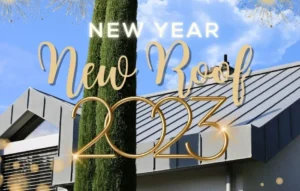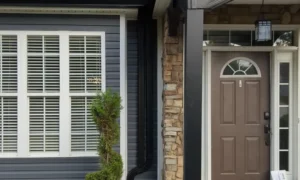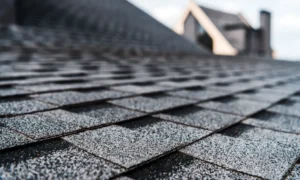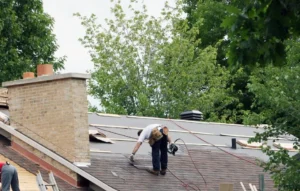It’s that time of year to get your roof inspected. Maybe you’ve never had an inspection before because it’s your first time living in your own home or you’re managing your first rental property. In this article, you can find tips and information on what to expect from a roof inspection.
Suppose you’re about to schedule a roof inspection thinking that a storm has damaged your roof or, in some way, call your insurance company first. In that case, they might cover the cost of repairs.
Best Roofing has gathered information about roofing inspections to cure your curiosity and help you feel safe and protected in your home.
When Is it Best to Schedule Roof Inspections?
Most homeowners schedule inspections after a significant weather event. But that’s not the only time you should have your roof inspected. Because if you wait too long, you could face preventable damages during a storm. Suppose you happen to think about it before any significant inconvenience happens.
In that case, the best time to get a roof inspection is before the seasons start to change too drastically. We recommend having your roof inspected in the fall. Timing is essential. Freezing temperatures can compromise the success of a new roof installation and repairs like shingle replacement due to improper sealing in the cold weather.
Look for the Signs You Need a Roof Inspection
Two of the most obvious signs your roof is damaged and needs an inspection are drafts and leaks. It would be best if you also looked out for dark streaks and stains on your walls and ceilings. This indicates that your roof is leaking, and the moisture is ruining your home’s interior and roof.
What Do Roof Inspectors Look For?
A roof inspector will look for leaks, unusual wear and tear, organic growth issues, wind damage, and problems that may have come up in the shingle installation or former repair. A roof inspection is broken into four main components: structure, materials, craft, and interior.
Structural Inspection
The inspector will check for roof planes that may have become uneven, examining the condition of the soffit, fascia, signs of sagging, and gutter system. Chimneys should also be inspected for crumbling grout, cracks, and damage to the chimney caps; this is the best time because someone is already on your roof. Inspectors may also check the venting of your attic because improper venting can lead to moisture and heat build-up that reduces the life of your roof.
Material Inspection
Your roofing inspector will look for missing, loose, or curling shingles. They will also check moss, stain, rust, and missing fasteners. They will also check rubber boots and seals around the vent pipes to see if there are any deterioration or gaps.
Suppose the inspector sees shingles aggregate that has settled into the valley of your roof or at the bottom of your gutter system at the ground. In that case, this could mean the roof is at the end of its life.
Craft Inspection
During this step, your roof will be inspected for any problems in the initial crafting and design. This could potentially increase the risk of leaks or other damage to your roof in the future, like incorrect flashing around roof penetrations, vent pipes, chimneys, and skylights.
Interior Inspection
Since roof leaks damage your home, the roof inspector will look at the interior of your ceilings, interior walls, and attic for water stains, rot, mold, and other signs that water is trying to make its way into your house.
The water stains will be brownish, similar to the spilled coffee on white paper. Mold and rot will be dark colors and most likely have a smell, but these are all things we can take care of during your repair or replacement.
What Else Could Be Inspected?
Layers of Your Roof- If you didn’t already know, your roof has different layers to it. The inspector will get on the roof and determine how many layers your specific roof has. If more than one layer needs to be replaced, everything will be in a detailed report for your better understanding.
One of the layers of your roof is the decking. Your inspector will test to see if it is spongy or solid underneath their feet. They’ll also check the nails in the decking to see if they are still holding firm.
Shingles- Proper installation of shingles is one of the most important things that need correcting. Everything is essential, of course, but if your shingles aren’t installed just right, you won’t get a useful and full lifespan out of your roof.
Penetrations and Skylights- A roof penetration is anything that sticks out through your roof. When the inspector gets up to the roof, they will look at all the penetrations, and if you also have skylights, they will make sure they are leak free as well.
Gutters- Your gutters will be checked for cracks, open seams, or any blocked or restricted flow that may cause vegetation and debris. They will also look around for standing water in the gutter system. This happens when your gutters get tilted in the wrong direction. It is crucial to keep your gutters cleaned as this plays a massive part in roof lifespan.
If You Have a Metal Roof…
Inspecting metal roofs is just as important as typical shingle roofs. Inspectors will look for the following:
Damaged Flashing- Flashing that has started to pull apart and has made a gap will allow water to sneak underneath your metal roof, which will lead to corrosion underneath the panels.
Loose Seams- Depending on the weather, metal roofs expand and contract. When this happens, screws loosen, and the seams start to separate. Suppose you don’t get this taken care of as soon as possible. In that case, the roof’s underlying material could be damaged from the build-up of water and condensation.
Rust Damage- Rust will do what it does best and eat away the metal of your roof. It creates large holes that let water leak into the house or cause panels of your roof to fall apart.
Roof Inspection Final Analysis
After the inspection of your roof, you’ll receive a detailed report about the condition of your roof and what repairs or replacements, if any, are necessary to keep it in good shape. If repairs are required, schedule them as soon as possible before the snow comes.
That way, when snow covers the neighborhood, you can be confident that your roof is in the best shape. You can also invest in a roof preventative maintenance program for better peace of mind at all times of the year.
Hire Responsible Roofers For Your Roof Inspection
Now that we have covered what roofing inspectors look for, make sure you hire responsible, reliable, and certified roofers like Best Roofing to handle all your roofing needs. We want each person we work with to have the best experience.
When you contact us, please describe everything you have been seeing and experiencing from your roof. This way, we can be more prepared to help you. After the inspection, you will receive details on what our team will repair or replace.
We are here to answer any questions you have that we may not have covered above. Servicing Kingsport, TN, and surrounding areas, our team is qualified for roof replacements, gutter systems, specialty roofing, and repairs. With more than 20 years of experience in construction and roofing, we are the best roofing company!




